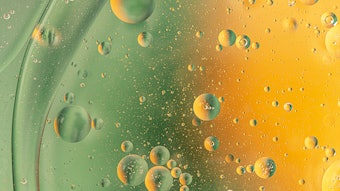
Microplastics in our oceans
You don’t have to be a marine biologist to know that plastics in our waterways and the oceans are a problem. Search for “marine plastic” on the internet, and you will find countless articles and horrifying pictures of marine life that washed up on a beach having ingested plastic waste in the oceans.
However, there is a different kind of plastic that is equally bad to the marine life, if not worse, which is not visible to the naked eye: the plastic microbead or microplastic. These are plastic particles of sizes under one millimeter that wash down the drain when you rinse off a personal care product, like an exfoliating scrub. Water filtration systems can’t handle microbeads. And because they don’t biodegrade, they often end up in lakes or oceans where small fish and wildlife mistake them for food.
The tide is against microplastics
Microplastics have been commonly used in cosmetics as exfoliating products to unclog pores, remove dead skin and freshen up your face and body. Due to rising concerns about microplastic pollution, the U.S. Congress passed the Microbead-Free Waters Act of 2015, which will slowly phase out the use of microplastics for good. The new law sets a series of deadlines to stop manufacturing and commercially distributing products made with plastic particles, with a final deadline of July 1, 2019, to halt the sale of over-the-counter drugs that contain them. With the last few microbead-containing products finally phasing out of American markets—and as other countries around the world follow suit—it’s important to understand the safe, naturally-sourced alternatives available to us.
Mild to the environment, and skin too.
Now skin care formulators are looking for plastic microbead alternatives to deliver safe, effective exfoliation without the environmental side-effects. In addition to low environmental impact, there is an increasing need for products that are mild and do not cause unnecessary and unpleasant irritation, commonly associated with silica or cellulose. With all the buzz about harsh and problematic ingredients, many of us are looking more closely at the labels on our skin products. Some skin care companies are responding with creative exfoliating ingredients and greater transparency on their labels.
Biodegradable, gentle solution
A new product launched by BASF addresses both concerns—biodegradability and mildness.
Cegesoft® Peel is a wax-based rinse-off exfoliating product that is sustainably sourced from natural feedstocks and is readily biodegradable and therefore, friendly to the environment.
Compared to sharp-edged alternatives like silica and cellulose, testing has shown that Cegesoft Peel’s smooth, spherical shape is far less likely than silica to cause scratches and skin-redness while providing equivalent exfoliation.
How is that for a clean ocean, clean conscience and a clean face?
For Formulators: request a sample on UL Prospector here.
Disclaimer:
The above paid-for content was produced by and posted on behalf of the Sponsor. Content provided is generated solely by the Sponsor or its affiliates, and it is the Sponsor’s responsibility for the accuracy, completeness and validity of all information included. Global Cosmetic Industry takes steps to ensure that you will not confuse sponsored content with content produced by Global Cosmetic Industry and governed by its editorial policy.










